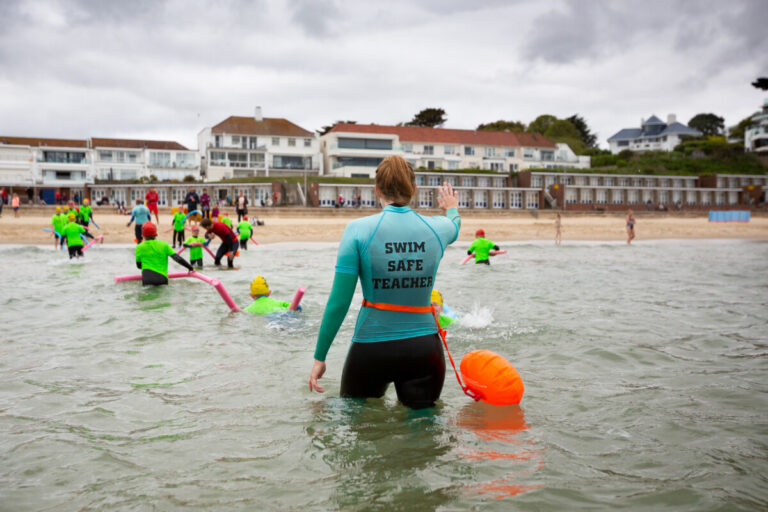Legacy fund helps RNLI & Swim England offer almost 6,000 children free water safety lessons

A legacy fund set up in memory of a man who drowned in 2015 has enabled almost 6,000 children to learn free water safety skills as part of the Swim Safe programme offered by RNLI and Swim England this summer.
Andrew McGeown, 32, drowned in 2015 after entering the water to save his dog while walking at Scarborough’s South Bay. His family were determined to turn their loss into something positive for the town and set up the Andrew McGeown Legacy Fund, which has given the opportunity to 5,742 children to learn water safety skills as part of the Swim Safe programme.
Andrew’s sister, Donna Loveland who set up the fund said:
Advertisement
“Fundraising in my brother’s memory has given my family a positive focus after Andrew’s death. The Swim Safe programme has been very successful. It’s a pleasure to be able to deliver such a valuable programme, and hopefully we will save many lives through the educational sessions.
“Andrew will always be remembered and loved thanks to the great legacy created with RNLI and Swim England and everyone who has supported us.”
Local delivery partners around the UK supported by the national governing body for swimming in England and the RNLI are running free Swim Safe sessions to teach children aged 7-14 how to stay safe in and around open water and what to do if they, or someone else, gets into difficulty – including how to float to live.
Sam Johnson of the RNLI’s Water Safety team said:
“Last year, RNLI lifeguards and volunteer lifeboat crews were busy, aiding more than 50,000 people and saving 408 lives.
“By educating children about water safety from a young age, together we can help reduce the number of incidents around our coasts and at inland locations. ‘That’s why we are encouraging parents of children between the ages of 7 and 14 to sign them up to the free Swim Safe sessions to help build their confidence in and around the water, while learning vital skills which could save their lives such as how to float.
“This is a simple technique where you lean back like a starfish, using your arms and legs to stay afloat. It allows you to control your breathing, then call for help or swim to safety and is proven to save lives.”
Since 2013, the Swim Safe programme has delivered free lifesaving sessions to more than 148,000 children across the UK. The 45 minute sessions are run by local partners with trained instructors during the summer months at outdoor water locations including beaches and inland sites such as water sports centres.



